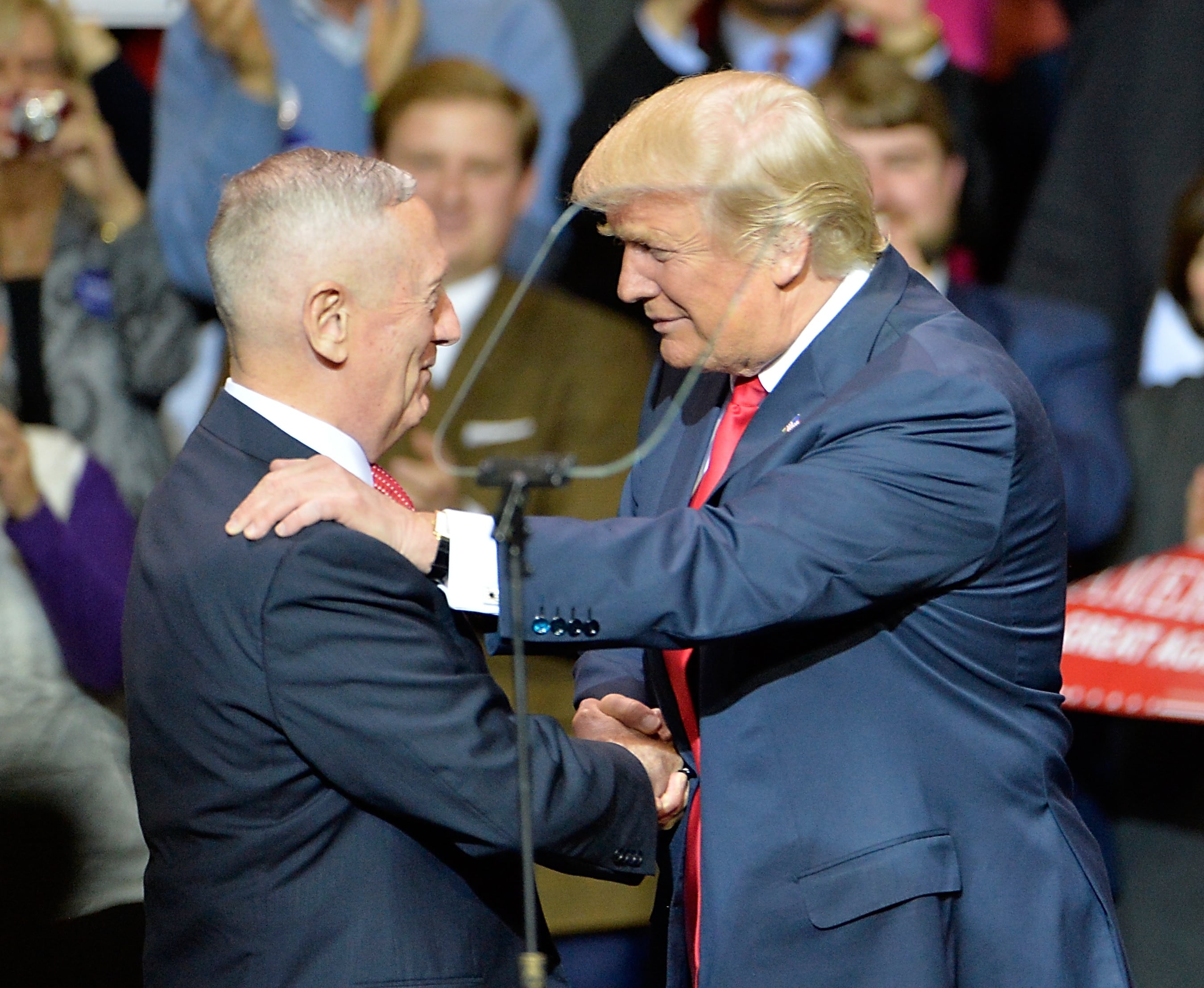Does it matter if the secretary of defense just left the military?
As lawmakers struggle with whether to grant a waiver to retired Marine Corps Gen. James Mattis to get around rules mandating a seven-years-long "cooling off" period before leading the Defense Department, the conversation has thrust the idea of civilian control of the military back into the public eye.
While largely a scholarly topic, it's also one that several senators this week said is overdue for healthy public debate. At issue are a host of questions about whether a bureaucrat who just left the ranks can be objective over funding requests, service demands and a non-military view of foreign policy.
"Having a recently retired general officer as secretary of defense poses all kinds of practical problems," Eliot Cohen, professor of strategic studies at John Hopkins University, told senators on Tuesday. "Would they bypass the chairman of the Joint Chiefs of Staff as the senior military adviser to the president? Would they allow normal rivalries or close friendships of their military career to affect their position?
"Even the appearance of such biases, let alone the reality, would make effective leadership of the Department of Defense difficult or impossible."
Almost all of the lawmaker objections to Mattis' nomination thus far have focused on those issues and whether giving a waiver in his case opens the door for an erosion of civilian control of the military in the future.
In testimony before the Senate Armed Services Committee, Kathleen Hicks, director of the Center for Strategic and International Studies’ International Security Program, said having too many military officers in any presidential Cabinet "risks furthering incentives for active-duty officers to politicize their speech and actions."
She noted those problems are further aggravated when so few Americans have direct contact with the military.
"The civil-military dynamic at the highest levels of government is already challenging … the lines between civilian and military roles can be blurry in the policy world," she said. "Furthering such tensions is unhelpful for threading the needle that our civil-military compact requires."
Senators said they don’t see any imminent problems with that dynamic disappearing. But the ranking member of the Senate Armed Services Committee, Jack Reed, D-R.I., said lawmakers need to be "very cautious about any actions that may inadvertently politicize our armed forces."
That topic has already been in the forefront of many military observers' minds, as numerous high-profile former officers took sides in the recent presidential election.
Reed said he worries that without proper oversight of such divides, "the inherent tension built into our system of government between the executive branch and the legislative branch will bleed over into suspicion of military leaders by Congress and a further erosion of civil-military relations."
Still, lawmakers appear to be poised to grant Mattis a waiver, based largely on his résumé and expressed understanding of civilian control of military issues. Both the House and Senate are expected to vote on the issue in coming days.
Leo Shane III covers Congress, Veterans Affairs and the White House for Military Times. He can be reached at lshane@militarytimes.com.
Leo covers Congress, Veterans Affairs and the White House for Military Times. He has covered Washington, D.C. since 2004, focusing on military personnel and veterans policies. His work has earned numerous honors, including a 2009 Polk award, a 2010 National Headliner Award, the IAVA Leadership in Journalism award and the VFW News Media award.





